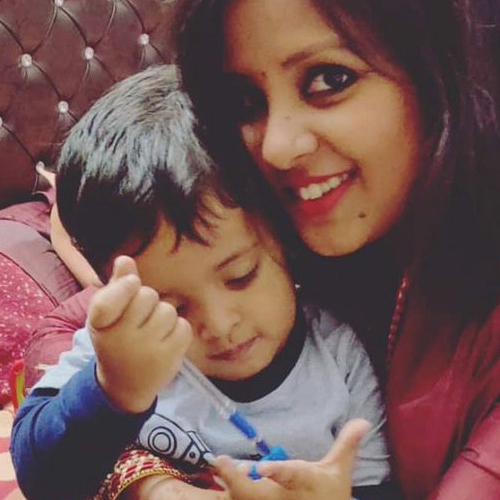The Indian education landscape is shaped by two major school boards: CBSE and ICSE. For parents, choosing between them is one of the first and most crucial academic decisions for their child. The debate of which is best CBSE or ICSE is a common one in households, and the answer isn’t straightforward. It depends entirely on your child’s learning style, academic strengths, and future aspirations.
This guide will demystify the core difference between ICSE board and CBSE board, starting from their full forms right down to their pedagogical approaches, to help you make an informed choice in the great CBSE vs ICSE board debate.
Starting with the Basics: CBSE vs ICSE Full Form
Understanding what the acronyms stand for is the first step in decoding the CBSE vs ICSE board conversation.
- CBSE Full Form: Central Board of Secondary Education. It is a national-level board of education in India for public and private schools, controlled and managed by the Union Government of India.
- ICSE Full Form: Indian Certificate of Secondary Education. It is an examination conducted by the Council for the Indian School Certificate Examinations (CISCE), a private, non-governmental board of school education in India.
The very nature of their governing bodies hints at a key difference between ICSE board and CBSE board—one is government-run, while the other is privately managed. This foundational difference often influences their curriculum design and overall educational philosophy.
The most significant point of comparison, and often the deciding factor for parents, lies in the curriculum. This is where the CBSE vs ICSE board discussion gets most of its traction.
The table below highlights the fundamental distinctions between the two Syllabus:
| Feature |
CBSE Syllabus |
ICSE Syllabus |
| Overall Approach |
Structured, Streamlined, and Uniform |
Comprehensive, Detailed, and Holistic |
| Primary Focus |
Strong emphasis on STEM (Science, Technology, Engineering, and Mathematics) subjects. |
Balanced emphasis on all subject groups, including Languages, Arts, and Sciences. |
| Language Emphasis |
Considered more manageable with a relatively lighter load on languages. |
Paramount importance given to English language and literature, ensuring exceptional communication skills. |
| Learning & Scope |
Content is presented in a straightforward, logical manner for grasping fundamental concepts. |
Encourages analytical thinking, in-depth understanding, project work, and application-based learning. |
| Key Advantage |
Ideal for students preparing for national exams (JEE, NEET) due to close syllabus alignment. |
Builds a strong foundation for international curricula, humanities, and management careers. |
| Best Suited For |
Science-oriented children targeting engineering and medical fields in India. |
Students seeking a broad-based education with strong analytical and communication skills. |
This clear contrast in structure and focus is a defining trait in the CBSE vs ICSE board comparison, helping parents identify which system aligns best with their child’s academic path.
Diving Deeper: Teaching Methodology and Assessment
Beyond the syllabus, the difference between ICSE Board and CBSE Board extends to how subjects are taught and assessed.
- CBSE’s Approach: The teaching methodology in CBSE schools is often more textbook-centric and theory-driven. The goal is to cover the mandated curriculum efficiently and effectively, ensuring all students meet a uniform national standard. The assessment, while evolving, still places a significant weightage on the final board examinations.
- ICSE’s Approach: The ICSE board advocates for a more application-oriented and holistic teaching methodology. Students are encouraged to explore topics beyond their textbooks through projects, presentations, and laboratory work. The assessment pattern is a blend of internal assessments, practicals, and final board exams, providing a more comprehensive evaluation of a student’s capabilities throughout the year.
The Final Verdict: Which is Best, CBSE or ICSE?
So, after understanding the core difference between CBSE and ICSE, which is best CBSE or ICSE? The truth is, neither board is inherently superior. The choice in the CBSE vs ICSE board debate should be guided by your child’s individual needs, learning style, and future goals. The decision of CBSE vs ICSE board is deeply personal and has long-term implications.
- Choose CBSE if: Your child is clear about pursuing a career in engineering or medicine in India. The board’s streamlined syllabus and direct alignment with national entrance exams like JEE and NEET provide a significant advantage. It is also a better option for families that relocate frequently within India, due to its vast and uniform pan-India presence, making school transitions smoother.
- Choose ICSE if: You want your child to receive a broad-based, holistic education with equal weightage to languages and arts. The ICSE syllabus is excellent for developing strong communication skills, critical thinking, and a global perspective, making it ideal for students who may pursue higher studies abroad or in fields like law, management, literature, or humanities. The rigorous approach prepares them well for international standardized tests.
Ultimately, understanding the difference between CBSE and ICSE is not about finding a winner, but about finding the right fit. A passionate learner can excel in either system. The key is to match the board’s philosophy with your child’s potential. Both boards are highly respected and can pave the way for a successful academic journey when aligned with the right student and supportive environment. We hope this detailed breakdown of the CBSE vs ICSE board helps you move forward with confidence.

























































Leave a Comment